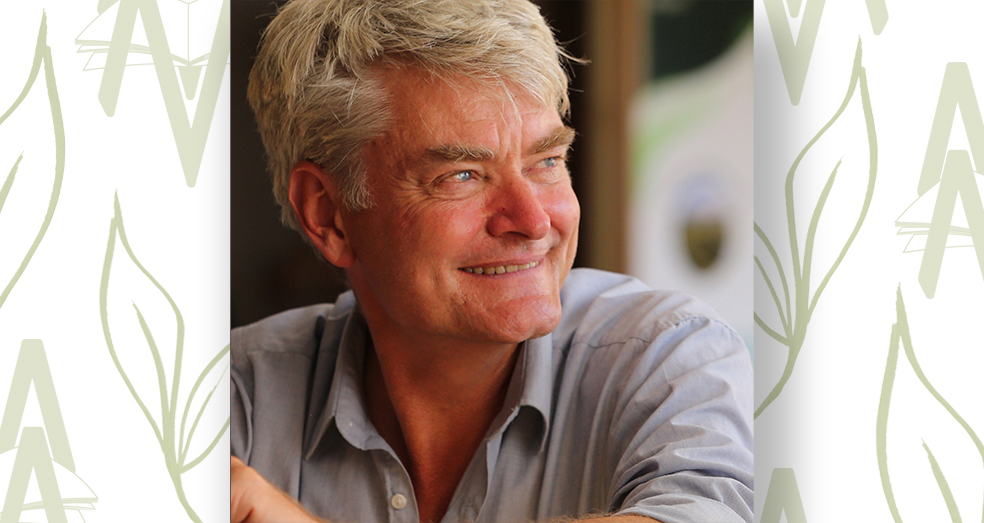John Aitchison

On judging the Environmental Poet of the Year prize
“I read many of these poems while waiting with a television camera alongside a sleeping pride of lions in Kenya’s Masai Mara. Lions are rapidly heading towards extinction in the wild, bringing home the urgency of the situation we all face, which is expressed in many of the poems.
More of us need to feel that we must change how we behave, but first we need to care. This is where poetry (and indeed, all the arts) can help. It seems to be easier to write prose about the facts of climate change and nature loss than to write more traditional poems but when persuading people of the need to change, facts are less than half the story; sincere feelings are more persuasive than anything else and poetry is unsurpassed at conveying feelings about why nature matters to us all.
I believe that many people come to poetry to be lifted out of our normal ways of experiencing the world – so I asked myself which of these poets do that for me, and whether their poems made me care enough about the environment to act differently.
I realised that I prefer poems to seem to be about one thing while also revealing a deeper, larger truth. I like them to let me find that truth for myself – this kind of showing rather than telling applies to filmmaking as well.
I enjoyed guessing what I could about the writers, for instance it was interesting to see how many entrants seem to be farmers, or connected to farms and farming. It was also interesting to see that many poems refer to ponds, lakes and rivers – these clearly matter to urban poets especially. It was perhaps not surprising that several poems also refer to Covid and the importance of nature when we were all locked down. Quite a few poems were inspired by news stories, especially BBC News. I found this encouraging. Some were about environmental issues that I know have been covered in wildlife television programmes, such as albatrosses feeding plastic rubbish to their chicks. I found this encouraging too, as the work of wildlife filmmakers does at least seem to be spreading the word and affecting people. Skylarks were mentioned quite often, as you might expect, but I was amazed to find poems on soil (two of them!), mosses and moths and even a sexy poem about an otter, which is surely a first. Many poems focused on an apocalyptic future. This is perhaps not so surprising – the future does look bleak at times – but is this the best way to convey the need for us all to change? There are strong parallels here with our dilemma as filmmakers – there is no point frightening our audience away. That way they will not hear the message. We need to convey hope and provide motivation as well as warnings.
Harm to the environment is such a serious topic that few poets chose to use humour, but even in the darkest times humour can deliver a message that few would otherwise want to hear. I would like to see more humour deployed in this fight and I appreciated the poems that did so.
There was an extraordinary range of very good poems across all the portfolios but fewer portfolios stuck closely to the environmental theme and also contained uniformly excellent, moving poems.
The poets had very different interpretations of the human/environmental theme and many strayed into pure nature poetry. Some of these poems were really excellent, but for me they did not fit the brief.
The requirement to provide a portfolio of work makes the tasks of the poets and judges harder but I suppose that is the point – this is a serious test. While it made the job harder in some ways, it had the benefit of making the short list shorter!”
John Aitchison is a wildlife filmmaker and writer. He most often films for the BBC, working on many series including Planet Earth 2, Seven Worlds: One Planet, Frozen Planet, Springwatch and Dynasties. He produced The Amber Time Machine, presented by David Attenborough, for The Natural World series. He has also worked for National Geographic, PBS and Discovery Channel. His awards include a joint BAFTA and a joint Primetime Creative Emmy, both for the cinematography of Frozen Planet. John has presented several series about wildlife on BBC Radio 4. Some of these stories became the basis for his book, The Shark and the Albatross. John lives in Scotland where he is involved in marine conservation, through the Coastal Communities Network.


